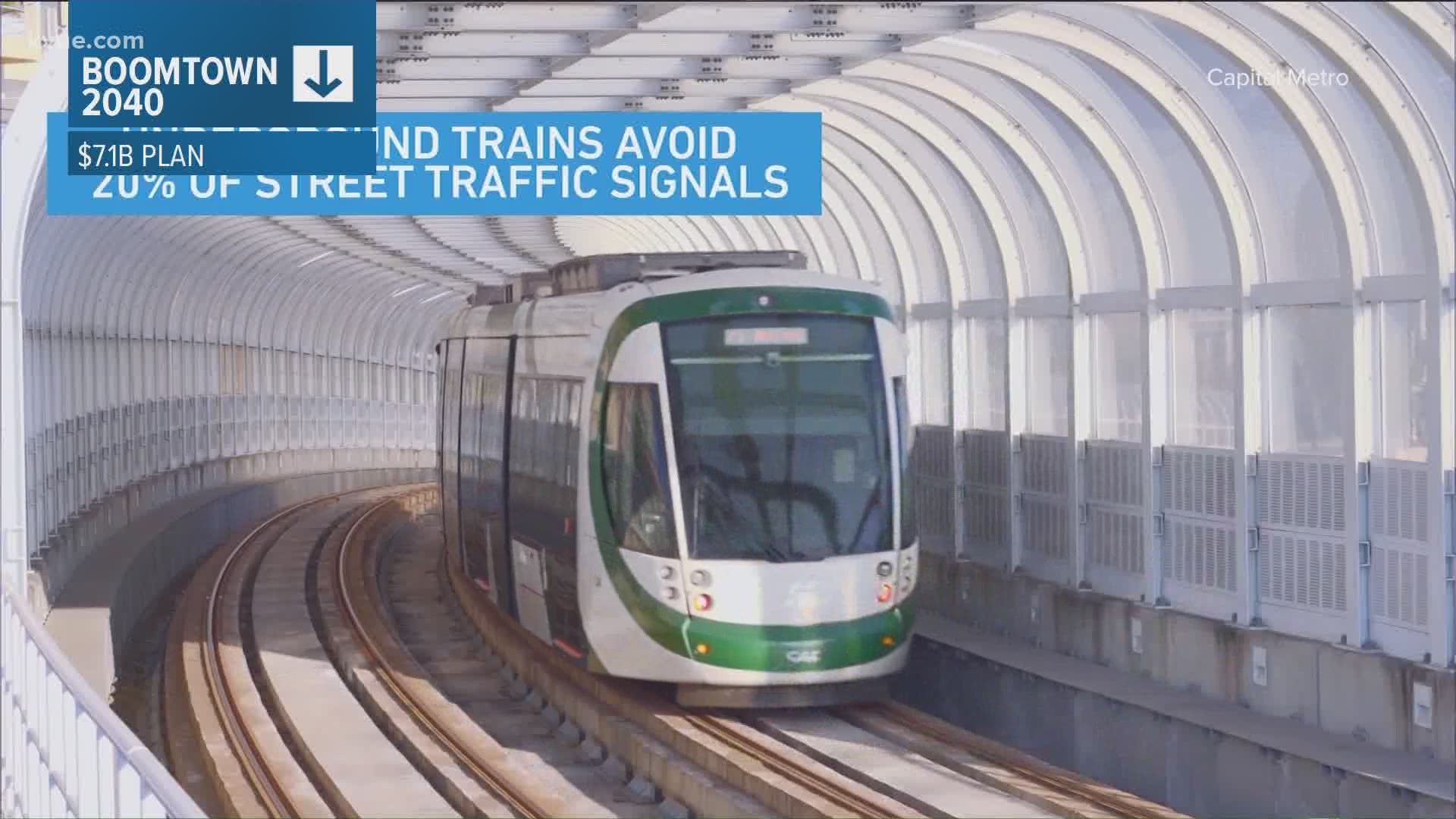AUSTIN, Texas — Editor's note: Prop A, a $7.1 billion Project Connect plan, passed in the November election. To read more on what that means for Austinites, click here.
In November, Austin residents will vote on Proposition A or "Project Connect," Capital Metro's $7.1 billion public transit plan, and Gerald Daugherty, the Travis County commissioner for Precinct 3, doesn’t think it should pass.
For one thing, Daugherty thinks the ballot language for Proposition A is confusing, and voters won’t really know what they’re getting.
"It has thrown just about everything in there so that you can go out and promote to just about anybody that has any, you know, idea about something that they might want," Daugherty said. "Now, a lot of people, I suppose, will read the entire language. But if you do that, you’re really confused because of all the different things that are in there."
Daugherty also doesn’t believe the plan can accomplish all that it’s promising – and even if it does, it won’t affect the lives of that many Austinites.
"I don’t think that you will be able to do anything near what they are saying will be done with light rail with the $7.1 billion," Daugherty said. "That is such a large portion of tax dollars going to something that, even if it is spectacularly popular, will probably touch less than 1% … at the most of the people in this community ... 95, 98% of Austin, I mean, this is nowhere near them."
Daugherty said that because of where the plan’s proposed light rail lines would be, users would still have to drive a car somewhere and park or take another form of public transit to get on the lines. And he believes even the proposed Blue Line, which would be a direct route to the airport, would likely only be used by people who already use public transit.
But those concerns aren’t Daugherty’s biggest issue with the plan.
"Why in the world would the City of Austin and Capital Metro be promoting something this expensive during the middle of a pandemic? ... The most egregious thing about this thing right now is the audacity that the City and Capital Metro would bring a $7.1 billion [plan] to this community and really promote it," Daugherty said.
Daugherty also pointed out that previous attempts to expand transit options in Austin have failed or not seen the success the City and CapMetro planned for. He said he didn’t fight the MetroRail Red Line when it was proposed but it ended up costing more than was projected and "10 years after its opening, the Red Line carries about 1,500 people a day" out of a population of 1.2 million.
According to CapMetro statistics, in February – before the pandemic hit Austin – the Red Line averaged 2,327 riders per day. But in July 2019, before consecutive months of Red Line ridership growth, the average was 1,320 per day.
"I often use that as a predicate. If you think the Red Line is successful and you need to know the numbers – but if you know the numbers and you go, 'Wow, that’s not very effective,' well, why in the world would you try to go out and sell, you know, another $5 billion to $6 billion worth of rail when the one you have is a miserable failure?" Daugherty said. "[Light rail] is not a very effective way to move the most people because it’s just not flexible enough. The bus is flexible."
CapMetro's current Red Line, which runs from Leander to the Downtown Station, is considered to be a commuter rail, which is "designed to bring outlying residents into Central Austin." The light rail lines proposed under Project Connect would run a much shorter distance and make more frequent stops.
Overall, Daugherty believes a vote for Project Connect is a vote for an expensive system few will use.
"Do not go and vote for Proposition A unless you don’t mind spending hundreds of more dollars on your property taxes. If you’re willing to go and admit that, 'OK, I’m OK with spending hundreds of dollars more for this $7.1 billion,' then maybe you’re going and voting for the right thing," Daugherty said. "[And] if you’re going to vote for it, you need to intend to use it."
As of July, Daugherty had donated $14,000 to Our Mobility, Our Future, an anti-Project Connect PAC, according to campaign finance records.
PEOPLE ARE ALSO READING:

